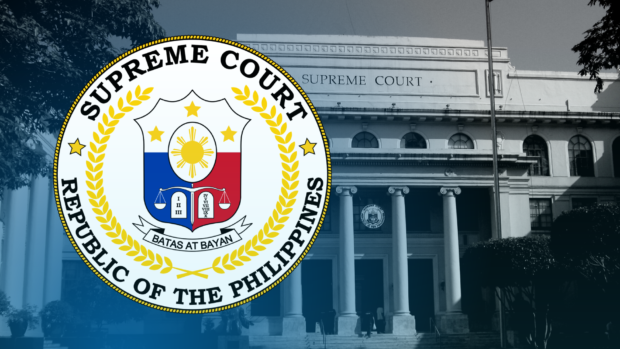Supreme Court stresses need for adherence to rules

MANILA, Philippines – All rules must be adhered to for the orderly administration of justice unless there exists a compelling reason to deviate from them, the Supreme Court (SC) on Monday.
The Supreme Court made the statement in its decision ordering Pedrito Nepomuceno, former Mayor of Boac, Marinduque to show cause why he should not be cited for contempt due to his repeated filing of defective petitions involving the same subject matter.
On December 5, 2023, the SC dismissed Nepomuceno’s petition for the issuance of a writ of kalikasan and writ of continuing mandamus against a reclamation project that has been causing floods in his area.
The SC, through Associate Justice Amy Lazaro-Javier said the petition was non-compliant with the requirements under the Rules of Procedure for environmental cases.
The SC said Nepomuceno failed to submit proper verification, pay the required docket and legal fees, show proof of service on the other party, file the required number of copies of the petition, and submit an electronic copy.
Article continues after this advertisementAside from non-compliance with the rules, the SC said the petition was not supported by any evidence.
Article continues after this advertisementNepomuceno then filed a motion to reconsider the dismissal of his petition.
But the SC said the same motion simply restated his 2023 petition and still ignored the procedural flaws identified.
The motion, which was also unsigned, pleaded for leniency instead of curing the procedural defects.
The SC said even if they were to consider the merits of Nepomuceno’s motion, “it must nevertheless still be dismissed for being unsupported by evidence.”
Prior to his 2023 petition, the SC said Nepomuceno also filed a petition, which was dismissed for being insufficient in form and substance. In it, he mentioned that no river was actually being reclaimed.
“Procedural rules are not to be belittled or dismissed simply because their non-observance may have prejudiced a party’s substantive rights,” the SC said.
It added: “Like all rules, they are required to be followed except only for the most persuasive of reasons when they may be relaxed. Thus, to protect the orderly administration of justice and to avoid unnecessary clogging of the Court’s dockets, the Court cannot let Nepomuceno’s non-compliance pass.”
The SC gave Nepomuceno 10 days upon receipt of notice to respond.
“Unless Nepomuceno can satisfactorily explain his actions, the same may constitute contempt of court,” the SC said.